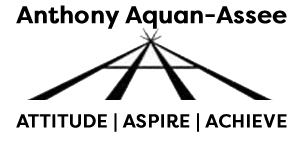The brain is your body’s master computer exerting its influence on all other systems in your body. A Brain Injury often results in severe stress and this may negatively affect many other parts of the body. Increased stress often shows up with sleep problems, fatigue and anxiety.
It is the purpose of your adrenal glands to help your body cope with stresses and survive. The adrenals are two walnut sized glands that sit on top of your kidneys and are called “the glands of stress.” It is their job to help your body cope with stress regardless of whether this is from a Brain Injury or other physical injury, from stress at work or from relationship problems.
The hormones secreted by the adrenals include cortisol and adrenaline amongst many other important ones. These are your body’s stress hormones and help to regulate and maintain your body’s metabolism as well as the “fight-or-flight” response. This response is the natural reaction of your sympathetic nervous system when your body encounters a threatening (stressful) situation.

Adrenal Fatigue
The stress caused by a Brain Injury can lead to great stress on the body’s sympathetic nervous system causing it to remain on high alert in the “fight-or-flight” mode for most of the time. This can cause your adrenal glands to stop working properly and no longer release the necessary hormones. When this happens, insomnia, fatigue, anxiety and sleep problems are often the challenges. This can result in a condition called, “Adrenal fatigue,” aka, Adrenal insufficiency.
The symptoms of Adrenal fatigue are as follows:
- Lack of energy
- increased effort to do everyday tasks
- difficulty getting up in the morning
- fatigue that continues and is not relieved by sleep
- craving for salt or salty foods
- decreased sex drive
- increased time to recover from illness
- mild depression
- symptoms increase if meals are skipped
- memory problems.
The blood tests to check for hormone levels fail to identify the low adrenal function associated with Adrenal fatigue. These tests are more suited to identify the severe condition of Addison’s disease, which is a rare and serious adrenal gland disorder in which the body can’t produce enough of two critical hormones, cortisol and aldosterone. Adrenal fatigue is not as severe as Addison’s disease but regardless, it still causes you to feel very fatigued and leads to chronic health problems.
Lack of a restorative sleep is one such problem. If your Adrenal glands are not producing enough cortisol this will cause disrupted sleep patterns leading to insufficient sleep. This combined with the sleep problems that a TBI survivor already experiences results in additional problems for a survivor.
Having experienced Adrenal fatigue after I sustained a TBI I felt compelled to share this information with others as modern medicine does not consider this to be a Medical Emergency even though it causes additional SLEEP problems for a survivor as well as additional FATIGUE & ANXIETY. Modern medicine doesn’t even consider Adrenal fatigue to be a distinct syndrome even though it can wreak havoc with your life. Low adrenal function is a problem that has become invisible to many doctors since they know very little about this difficult health problem. Your concerns may be frequently dismissed since the lab tests failed to show that anything was wrong. The reason for this is that these lab tests are narrowly interpreted and ONLY show that your symptoms are not severe enough to warrant a diagnosis of Addison’s disease. Hence, your symptoms and problems are disregarded because they must be . . . . all in your head !
What can be done:
Lifestyle Changes and Nutritional Supplements
There are no magic pills for Adrenal fatigue but there are important lifestyle changes and nutritional supplements that will help with your recovery. (1) Find ways to reduce your stress through meditation, exercise, music, daily walks, etc. Reducing your stress can help your Adrenal glands function more effectively. (2) In addition, a diet that contains the right nutrients is important to help your Adrenal glands function properly. I purchased “Adrenal Fatigue: The 21st Century Stress Syndrome” By: Dr. James Wilson from the website that follows below and the information I learned along with his suggestions have helped me greatly. Please visit: https://adrenalfatigue.org
Homeopathic Medicine
This has also greatly helped my sleep, anxiety and Adrenal fatigue problems. In Homeopathic Medicine, the Vital Force is what heals the mind, the emotions, and the physical body. Some people call it CHI (China), KI (Japan), PRANA (India), but it all involves the energy in our bodies. It is this flow of energy that keeps our mind, emotions, and body in harmony and free from disease. Please visit: vitalityhealthcentre.com
Eye Movement Desensitization Reprocessing Therapy (EMDR)
This is a psychotherapy that enables people to heal from the symptoms and emotional distress that are the result of a trauma or other disturbing life experience. EMDR involves attention to three time periods: the past, present, and future. Focus is given to disturbing memories of a trauma which often cause problems with someone’s physical and mental health. There were great improvements with my sleep, anxiety and fatigue when I became open to resolving the disturbing and traumatic experiences from my past. Please visit: heather-morton.com
Binaural Beats
Read my article about the healing benefits of sound to find out more about listening to Binaural Beats to help you sleep, and to restore your brain’s natural balance.
Alternative Treatments
Discover Natural Treatments you can use to heal yourself at the following link: rethinkredorewired.com
NOTE: Sleeping pills such as Zopiclone, and benzodiazepines such as Clonazepam, Ativan and Valium should only be used temporarily to help you through an acute period. Long term use of these medications can result in dependency, cognitive impairment, and problems with one’s physical and emotional health.
References
- Anthony Aquan-Assee’s personal life experiences. Please visit: anthonyaquan-assee.com and rethinkredorewired.com
- “Adrenal Fatigue: The 21st Century Stress Syndrome” By: Dr. James Wilson
- adrenalfatigue.org
- vitalityhealthcentre.com
- heatherandrewscounselling.com/emdr-therapy
